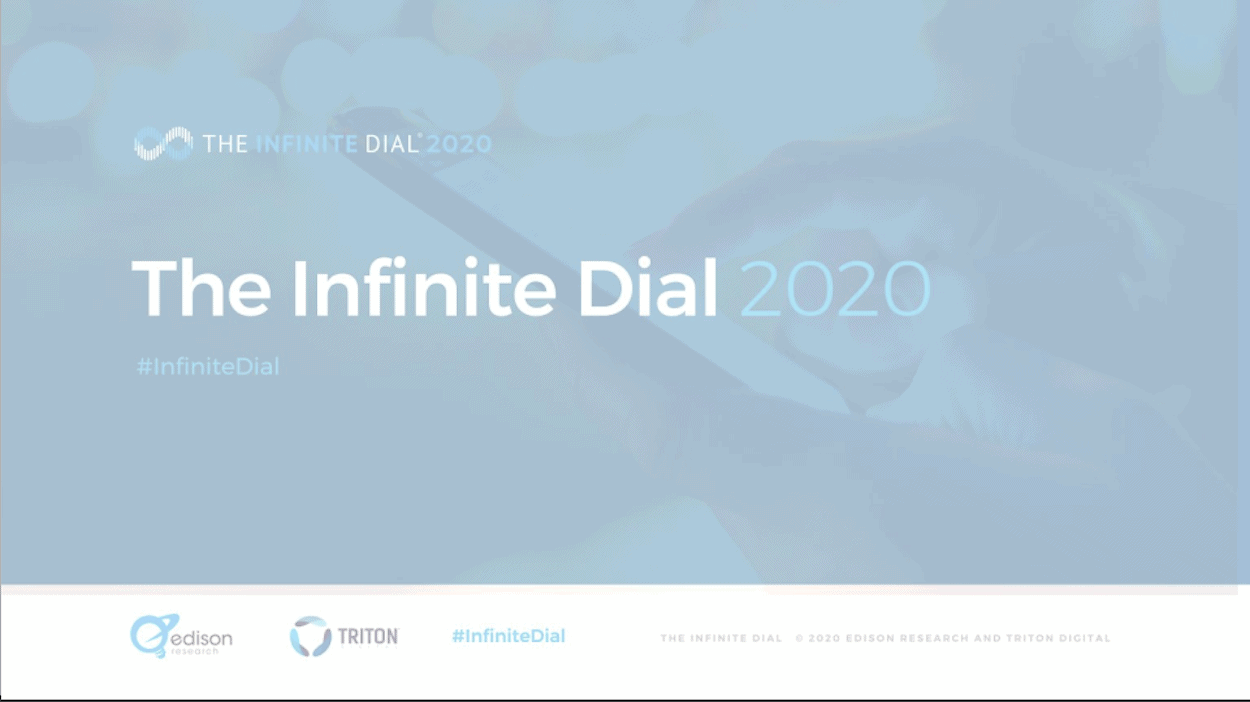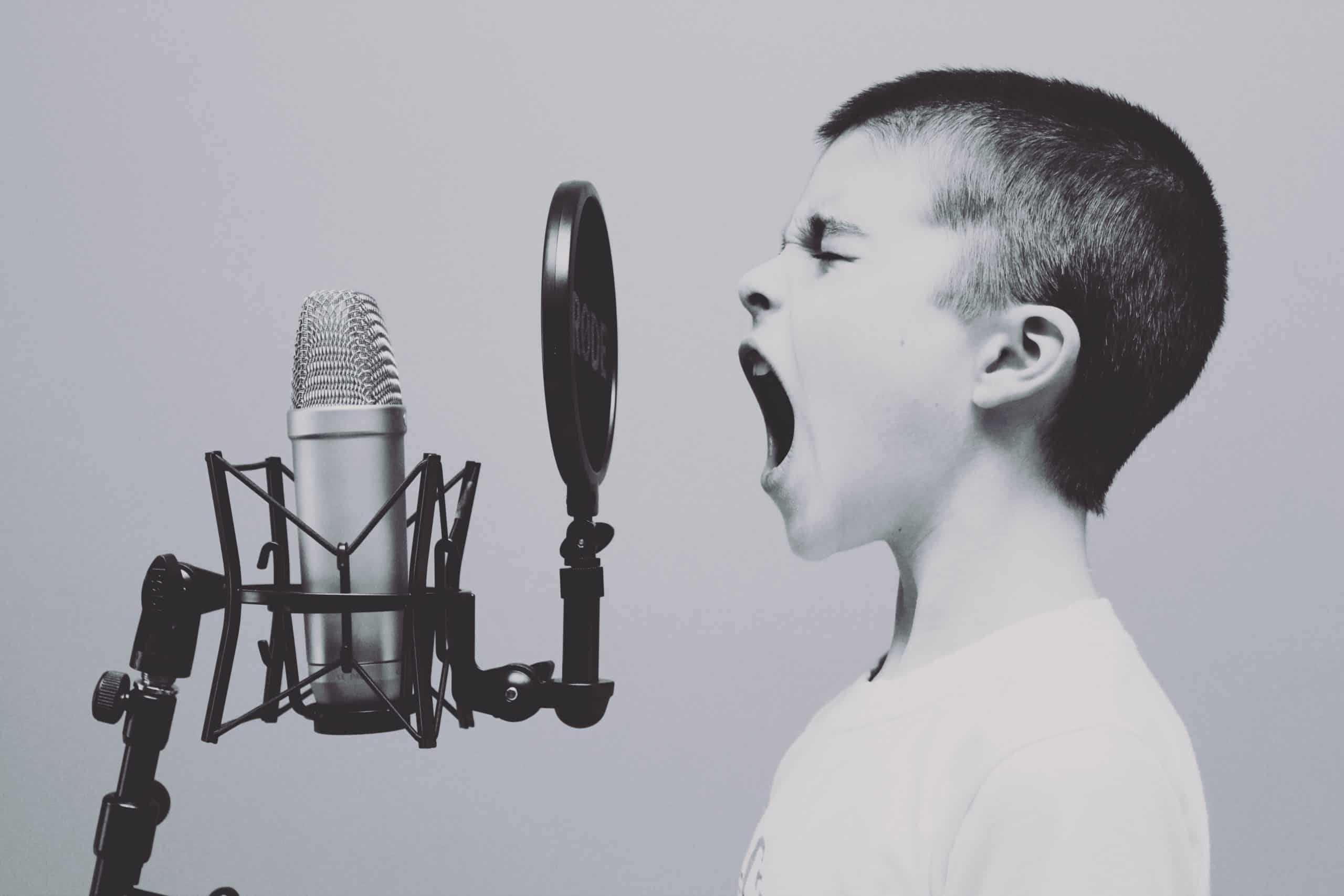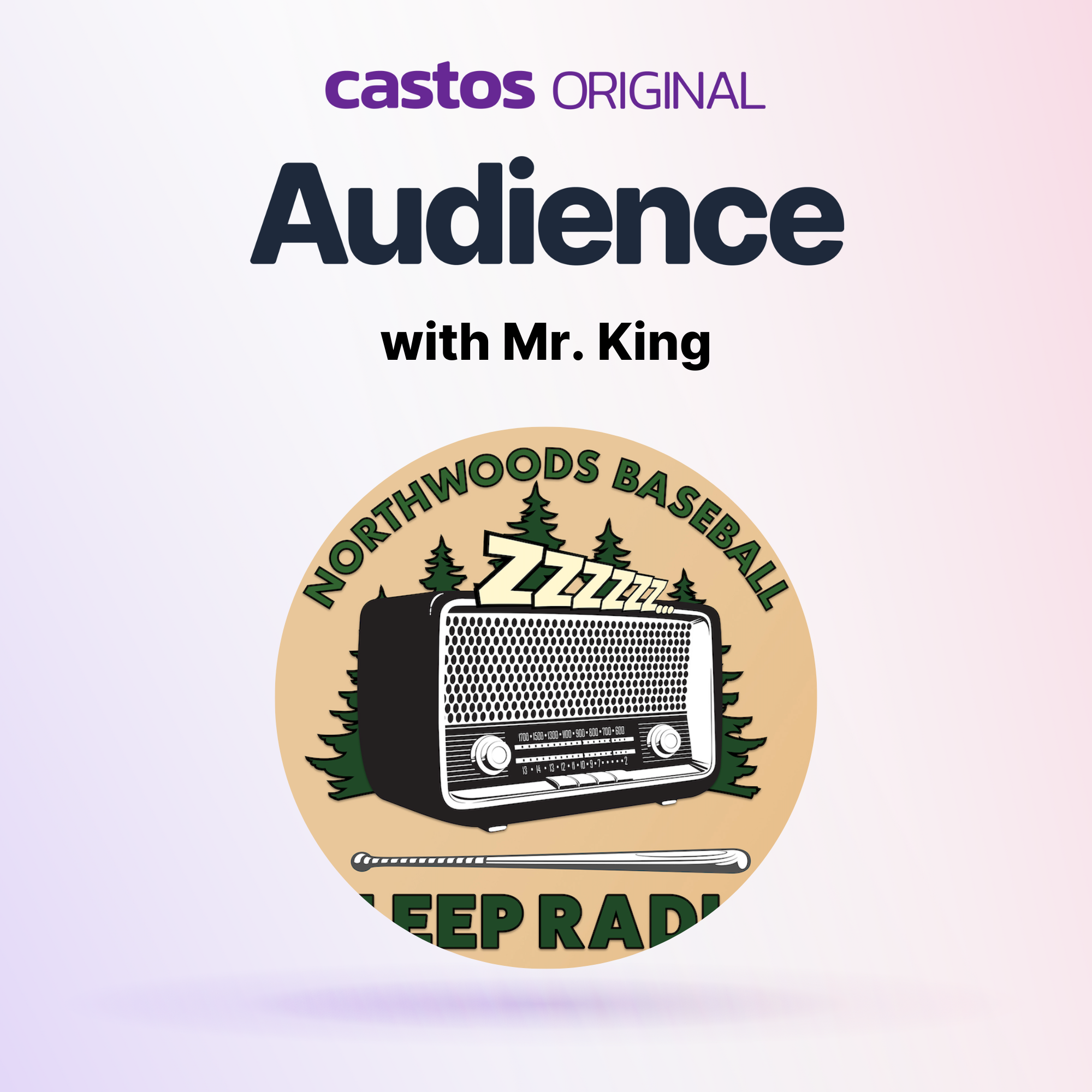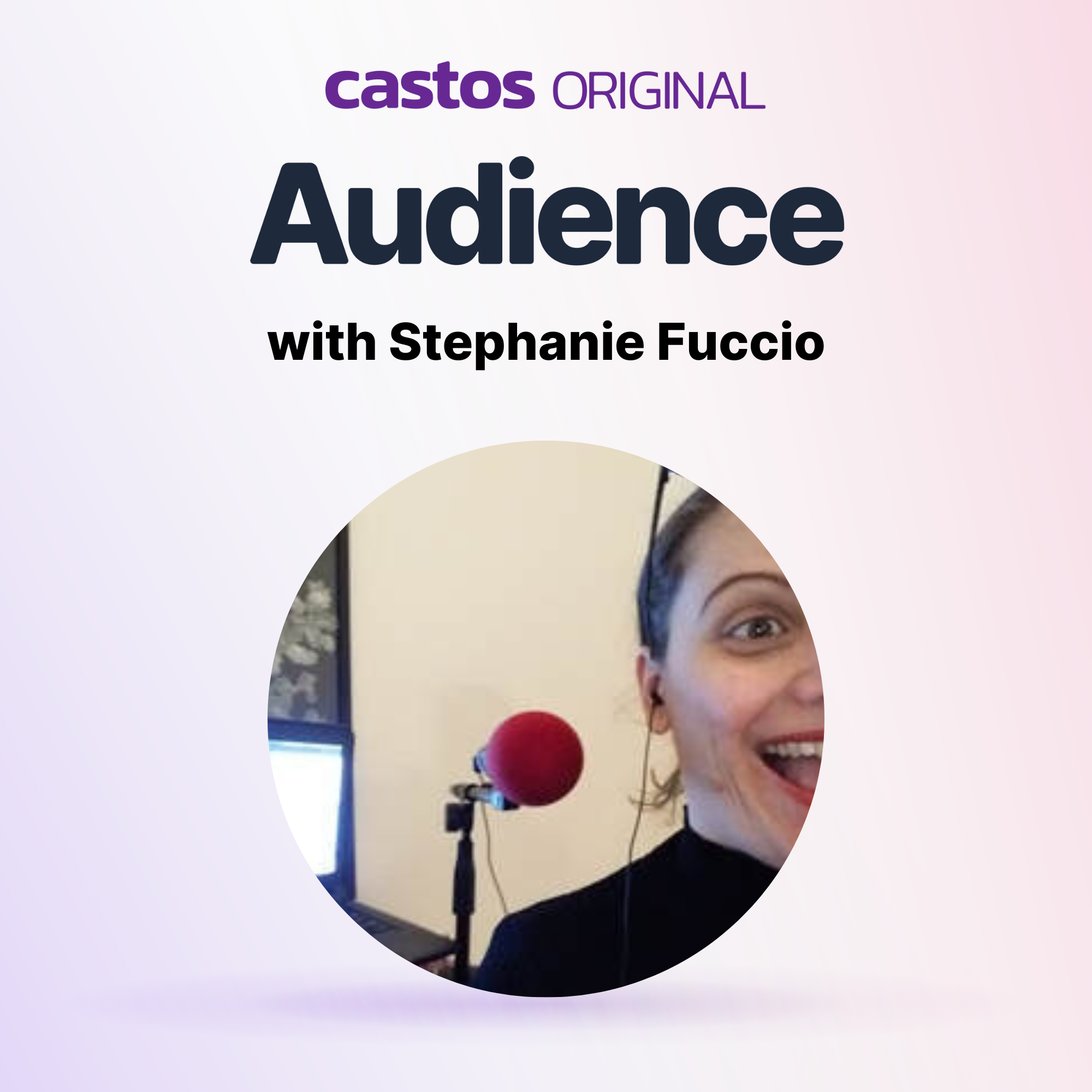Episode Transcript
Speaker 1 00:07 Hello and welcome back to the audience podcast. I'm your host, Craig Hewitt from castoffs. Well, these are wild and trying times that we're all going through in the face of the Corona virus pandemic at this point of the 1st of April recording this, uh, the, the virus is continuing to, to kind of control much of what we do in our normal lives. And, uh, there's just no way around that and unfortunately we can't do much about it other than try to make the best of the situation that we're all in. Um, so our thoughts here at Casto, sir, with you and your loved ones during these times, I hope that everyone is, is happy and healthy considering what we're all going through. Um, and certainly if there's anything that we can do related to your podcast, please let us know. Hello at <inaudible> dot com send us a message, tell us about it and we'll see what we can do.
Speaker 1 00:54 I mentioned in the last episode that we wanted to do kind of a different style of, of episode and it'd be kind of a Q and. A. So, uh, you know, you have sent us in your questions. There are absolutely wonderful questions and thank you very much for sending those to us. And in this episode we're going to talk to her about a half a dozen questions that you've sent us, either via email or through our Facebook group, podcast, hackers, and uh, and, and kinda talk through those. Some of them are kind of big picture questions and some of them are much more kind of fine grained and Minuit in detail. Okay. So let's hop into the first question here is from Matthew. Matthew asks, what are your thoughts on doing bonus episode content that is different from regular episodes? He says he kind of diverging from his normal conversations.
Speaker 1 01:37 He's looking doing a story, bonus style episodes, uh, that that would just be a different format. Um, you know, Matthew, I think this is that this brings up the topic kind of generally about different styles of episodes or different formats of episodes and what we think of those as opposed to kind of sticking with a standard interview or monologue or you and a cohost, uh, episode format that there are a lot of folks typically have. And the answer to this is I think it's a great thing to experiment with. Um, experimentation, especially if your podcast has been going well can be really scary. I totally get that. Our podcast here has changed a fair bit. Um, recently we started doing a lot of monologues, like sewed where it's just me talking, uh, and brought on more guests. I really like guest interviews and uh, we weren't sure kind of how that would go to be honest.
Speaker 1 02:25 And, um, one of the things that we did that I think would be my guidance to you in this is to, to prepare your guests, uh, for, for what's coming in these different types of episodes. And so I'd probably do that in the episode before you launch this different kind of style episode. Say, Hey, in the next episode release, it's going to be on a different day maybe or it's going to be released at a different time or it's just going to be a different format. Instead of doing a, you know, conversations on family, we're going to be talking about, uh, you know, kids are going to be talking about coronavirus or when you're talking about whatever. And I think the thing about this is that it gives people a heads up ahead of time that a different type of episode is coming maybe on a different day, a certainly different format or different duration or something like that so that they know what's coming.
Speaker 1 03:11 And then in that episode as well, I would preface the episode itself with that same kind of, let's say disclaimer, that same kind of heads up to say, you know, Hey, we mentioned this at the end of the last episode, but this episode is going to be a little bit different and it's going to be different for this reason. And the reason we're doing this is because X, Y, Z, and the X, Y, Z typically is, you know, we want to serve you as our audience better and give you the content that we think that you really are looking for. And the best way to do that is through a different type of episode. Uh, not because you just want to do it, but because you think it's the thing that your audience wants and needs and just a different style of episode is, is the way that you can best kind of serve your audience.
Speaker 1 03:50 So I definitely think this is worth doing. I think that preparing your guests and giving them a heads up at the end of the episode before, as well as the beginning of that episode is, is really important. So they know that you're intentionally doing this and that it's a test and it's experiment. And then that you should ask for feedback from them and say, Hey, you know, we're trying this out. I think this is good because of these reasons, but please let us know what you think, you know, in a Facebook group or on email or social media, um, or you know, I would say in person events but are probably not that right now. Uh, but, but ask for feedback. Say, Hey, if you like this, let me know. If you don't like this, let me know and let me know why. Uh, so that we can either continue doing more of this or, or not.
Speaker 1 04:29 Um, so, so kind of specific about testing different types of content and different formats there. Uh, Matthew, I hope that was helpful. The next question is from our Facebook group. So from our podcast hackers, Facebook group, Scott asks, um, my top interest is in growing an audience. Any guidance on that would be appreciated. Uh, it seems like he's tried a small Facebook ads campaign but didn't see any traction. I was considering attempting to advertise on other podcasts but don't understand how to do that yet. Um, and then content wise, if there are issues or advice on quality and content, I love getting feedback. If the content is holding the growth back, I'd love to hear input on that as well. Uh, cool. So two questions here really. I think, um, I'll take the second one first is content-wise and getting feedback. And we posted, uh, some discussions around this in the Facebook group as well.
Speaker 1 05:18 And, and I think I go back to the advice that I took away from the episode with Jack <inaudible> from the dark net diaries. And it was to get really, really specific feedback on your episodes and on your show as a whole. So not just, Hey, what do you think of my podcast? But Hey, what did you think about my call to action in episode 32? Hey, what did you think about the way I framed this discussion in episode 17 or the episode from two weeks ago? Get really, really specific feedback on a particular part of your content. And, and I think what that does is it allows people, or maybe it forces people to not just say, yeah, it was good, but forces them to think more critically about your show and what you're talking about. And this, this really specific part of your show.
Speaker 1 06:06 And I think psychologically for people, it's easier for them to be critical if you're asking for advice or feedback on a really small piece of your podcast, not just overall like, Hey, your podcast stinks. No one, no one's going to say that. But what they might say, yeah I know what you're trying to do with this episode, but I think you might've been able to do a little bit better if you thought about, you know, approaching this way or asking that question or concluding and having a call to action that was a little more like this from their perspective. They're not just saying your podcast stinks in general. They're saying, you know, I know what you're trying to do with this one piece. I think it kind of fell flat and maybe think about for that one piece, doing something a little different. Um, so, so Scott, from a content feedback perspective, that's what I would say is like Jack suggested, uh, really look at, um, getting super specific feedback on a particular part of your show and not just the show in general as far as growing your audience.
Speaker 1 07:04 And this was a, another question that another person posted in the Facebook group growing your audience and promotion is, is I think the thing that most of us struggle with. I think a lot of us know how to create good content. Um, I think the difference between good and great content can be pretty big. And so that might be a place to, to focus. And I think Scott is, is on the right track here to touch, to think about audience growth and good content in the same thread, um, because they're, they're definitely linked. So your, your show will grow organically if your content is really, really great. And so Scott is spot on to say, what do I need to do to make the content of my show better? Uh, because if you do that there you have a better chance of your show growing organically.
Speaker 1 07:47 Aside from that, I think that things like Facebook ads and I don't know kind of what Scott's kind of existing social network or platform is or where he's coming from there, but, but I'll generalize this to say if you have a large following, so large social media presence and following a large email list, um, that, that's the place to go first. Um, if you have people who already kind of know who you are and like and trust you and you're starting a podcast, obviously they should kind of know, like, and trust your podcast as well. And then your job is just to let them know about that and that the sh the content is out there and this is why you think they should listen. And that, that all kind of should be a natural extension of this audience or this following that you've grown already if you don't.
Speaker 1 08:33 So if you're kind of starting from a dead stop, I understand the, uh, the move to do something like running Facebook ads. We will be experimenting with this. If you remember, we ran a campaign of ads and overcast and we'll be reporting on that pretty soon. But the short version of it is, I feel like it was a good investment for us because for this show at least we are starting from a relatively small kind of platform, uh, in terms of our, our listenership. So the overcast ads, um, the nice thing about it is there a fixed cost. Um, they are, uh, they're, they can be relatively specific so you can pick the category that you want to advertise in. Um, and unlike Facebook ads that from my perspective can really get away from you from a cost perspective. Uh, with an overcast ads, you run them for a month and there's a specific amount upfront that you pay.
Speaker 1 09:23 Uh, we paid about $650, I think. Um, and out of that we got several hundred new subscribers. So, um, for us that, that was a win. And so Scott, that might be something to think about. Um, I will throw the caveat out there that specifically right now with Corona virus, I know that podcasts listenership is down. Um, places like pod are saying maybe up to 50%. And so that's really something to think about is, I don't know that right now is the time to be spending money on advertising. Um, but I would go the other way and go kind of more grassroots and say, okay, of the people that I already know, how can I tap into, to them and their network and get my content in front of them in a, in a different way. I think right now a lot of people are obviously and for a very good reason, really concerned about what's going on with Corona virus.
Speaker 1 10:16 But I think there are also people that are looking for an escape. Uh, so, so if you think about that kind of paradigm to say like, does my content fit in with the, the need that a lot of people have right now for more information, uh, and, and maybe more security. If so, then then I think that's a, that's a fair angle to, to kind of approach people with. If not, I think you need to say, Hey, can I be that outlet for people that are inundated with news, um, and social media about coronavirus and about hospitals and about the economy and things like that. Um, can I be this outlet that people can get away, uh, from, from the reality, I guess, of what we're all going through. Um, and, and what that looks like kind of practically is, is really kind of, uh, one-on-one marketing and promotion is reaching out to specific people or specific thought leaders in your area saying, you know, and, and again, going either way, whether you think that you're aligned with what people want right now with coronavirus or not, and they want an escape.
Speaker 1 11:19 You know, reaching out to those people in your space who are thought leaders and saying, Hey, I created this really great piece of content and my podcast. I think you and your audience would really like it. Please go check it out. And this is hard work. There's no two ways about it. There's no a special button that you can click or no little ads that you can run that, that will, uh, make your podcast grow. Unfortunately. And I think that creating great content and putting that in front of people and then letting those influencers and the people in your space that you think would really resonate with your content know about it and why they and their audiences should listen is, is really the best way to grow an audience. Um, and again, this is, this is not, it's not hard, but it's not easy.
Speaker 1 12:00 It takes time and it takes a lot of thought and it takes networking. Um, but, but this is the way to grow an audience. Um, so Scott, I hope that was helpful. The last question we had came in, uh, specifically about kind of Corona virus in this time that we're going through right now and, and what we think it means to, to podcasters in the medium term. And I'll say the medium term being the next couple of months. So I think if you're following the news, um, again, today's April 1st that we're recording this episode will go out tomorrow. We're doing this kind of just in time because we know that a lot of things are changing and all of our lives right now, so we didn't want to show, so we don't want to release you an episode from three weeks ago when frankly the world was pretty different.
Speaker 1 12:40 Um, but, but so we're recording this episode really just in time so that you guys can get the latest kind of perspectives from our end about what we're going through right now from a podcast perspective. Uh, so what we're seeing from the data and the industry is that the listenership of podcasts is, is down quite a bit. Um, and I think that makes sense. If you think about how your daily lives have been changed with Corona virus, so confinement, um, sheltering in place, locked down, whatever you want to call it, basically you can't leave your house of if, if you're in kind of, most of, most of the world I think, uh, is kinda confined to their houses. People are not going into the office for work. People are not going on trips. Um, people are not even really going to the gym or doing exercise like they would normally.
Speaker 1 13:25 All of these are the most common modalities or ways that people listen to podcasts. So our lives in, again, the short or medium term have changed a lot. Um, a lot of us that are parents are homeschooling our kids and so a lot of our days are spent instead of going to work and being with our colleagues are spent teaching our kids. Um, and so the podcast listenership has changed because the, the places and the times that we normally listen to podcasts we don't have anymore. I think the opposite of that and kind of going back to the discussion around growing your audience and having content that is kind of related to or, um, supported by the, the habits that we have now is if you have kind of a daily update podcast or a podcast about your local community, certainly if you have a podcast about coronavirus, I think it would be very popular right now.
Speaker 1 14:17 I don't think that's something that a lot of us can or want to create. Um, but, but just thinking about the type of content, um, I think everybody's life is affected by this. And so if you want to create content specifically about what we're going through and releasing that on a more frequent basis, I think that would be a good move. Um, obviously not changing the whole format of your podcast, but the reality is this is much of what people want to hear about right now because it's affecting our lives. Uh, and so as you're able to slightly adjust course for your podcast to talk about this, I think that's a good move specific to advertising because listenership is down so much advertising involvement from companies and the dollars associated with that on a CPM basis are, are down as well. So if you are a podcast with sponsors and ads and your show, the drop in listenership is resulting in a drop of revenue just because they're paid on, you know, cost per thousand downloads.
Speaker 1 15:15 Um, and so this is just kind of a natural result of the reduction in listenership that a lot of us are seeing. Again, I do think this is relatively temporary. I say the medium term because it's not going to be fixed next week. It might not be fixed next month. But if we look at, you know, the end of the year, I do very much expect for quote life to be normal. Again, from this perspective, we all will be going back to work, will our kids will be going back to school, we'll be traveling, um, certainly by the end of the year. That is a long way from now as we're recording this on April 1st. Um, but, but it's not forever. And so I don't want folks to think that, Oh my gosh, you know, I can't podcast anymore. Cause it's just not, it's not the place to be. It's not the medium anymore. Uh, I definitely think it is.
Speaker 1 15:59 I think the reality is that the medium of podcasting and the way that people consume podcasts, uh, is changed right now because of the behavioral changes we're all going through. And once we're all able to go back to work or kids go back to school, we're able to travel, go to the gym, things like that. Places where people typically listen to podcasts. Uh, we'll see listenership go back up. Um, and from a content perspective, I think that it makes sense if we think about serving our audience, it makes sense to adjust the content of our shows a bit right now to, to tune into what people are really looking for. Um, I think it comes off a bit tone-deaf if you're not taking into consideration what we're going through right now with respect to, to what you're talking about in your podcast. So I don't think it, it needs to be a complete kind of one 80 and turning your podcast on its head.
Speaker 1 16:49 But I do think that, um, like we're doing here, we're talking about things that are universal and kind of evergreened from a content perspective, but we're also talking about some of them in the context of what we're going through right now. And I would encourage everybody to at least think about maybe doing that as well. Okay. So those were the the few questions that we had come in for this episode. Thank you all very much for sending in your questions. This is really fun to hear what everyone is thinking about and struggling with and where we can help. I hope these answers were helpful for you all that send questions in and for everybody else listening, certainly if you have any questions, anytime, please feel free to send them to us via email. Hello at <inaudible> dot com on social media at Castillo's HQ or in our Facebook group, podcast hackers, just search podcast, ACARS and Facebook and request to join there and we'll get you added a lot of really great discussions going on in there and we have some really cool stuff planned here for the next few weeks. For sure. I hope everyone is happy and healthy and staying safe out there. And certainly if there's anything we can do to make your life
Speaker 0 17:50 during these times, uh, better and easier, please let us know until next week.






